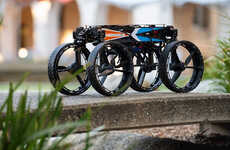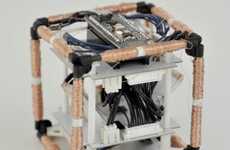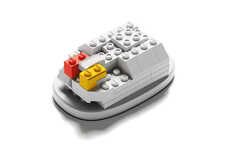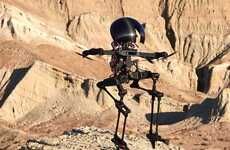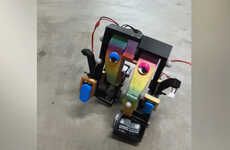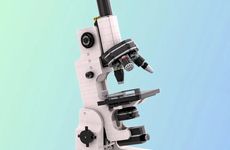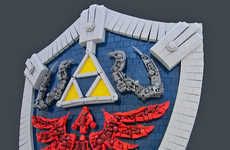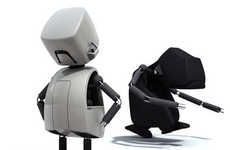
References: eurekalert.org & ohgizmo
Imagine the LEGO bricks which can be assembled and connected in a myriad combinations. Each of a modular-robot is individually a complete robotic system and has a power supply, micro- controllers, sensors, communication, three degrees of freedom, and six connecting faces (front, back, left, right, up and down) to dynamically connect to other modules.
Implications - Called the Superbot, this mechanical wonder's ability to reconfigure in various shapes and systems allows it to perform different tasks. Examples include rolling, climbing or even burrowing in the ground. Despite it's solid shape, the design does allow "flexible bending, docking and continuous rotation," according to Eurekalert.org.
The Superbot was designed by Wei-Min Shen of the University of Southern California's Information Sciences Institute.
Implications - Called the Superbot, this mechanical wonder's ability to reconfigure in various shapes and systems allows it to perform different tasks. Examples include rolling, climbing or even burrowing in the ground. Despite it's solid shape, the design does allow "flexible bending, docking and continuous rotation," according to Eurekalert.org.
The Superbot was designed by Wei-Min Shen of the University of Southern California's Information Sciences Institute.
Trend Themes
1. Modular Robotics - The trend of creating individual robotic modules with the capability to dynamically connect to other modules and perform different tasks is disrupting traditional robotics.
2. Flexible Robotics - The trend of building flexible and re-configurable robotic systems, such as the Superbot, is opening up new possibilities for diverse applications.
3. Multi-functional Robotics - The trend of designing modular robots to perform multiple functions, such as rolling, climbing or burrowing, is transforming the future of robotics.
Industry Implications
1. Robotics Industry - The robotics industry is disrupted by the trend of modular and flexible robotics that allows for diverse applications and functions.
2. Education and Research Industry - The education and research industry are provided with a new opportunity to explore and develop modular and flexible robotic systems, such as the Superbot, to further advance the field of robotics.
3. Manufacturing and Construction Industry - The manufacturing and construction industry can leverage modular and flexible robotics to improve efficiency and simplify complex tasks such as assembly line production or construction of structures in hazardous environments.
4.4
Score
Popularity
Activity
Freshness



